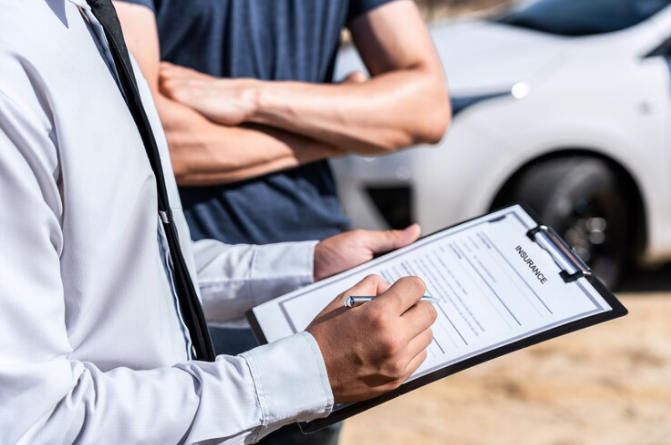Comprehensive Guide to PCP Claims: Filing, Denial, and Appeals
What Are PCP Claims?
If you’ve ever dealt with an insurance policy, you’ve probably come across terms like PCP (Personal Contract Purchase) claims. But what exactly are PCP claims, and how do they work? Whether you’re trying to get compensation for a personal injury, vehicle damage, or some form of property damage, understanding how PCP claims work can save you a lot of headaches.
Understanding PCP Insurance Policies
Personal Contract Purchase (PCP) policies offer a flexible approach to financing high-ticket items like vehicles. Typically, PCP agreements help individuals afford cars by spreading payments over several months or years. But, of course, where there are policies, claims aren’t far behind. PCP claims allow you to seek compensation or rectify situations when something goes wrong during the agreement period.
So, whether it’s about an accident or a malfunction, you want to know what’s covered. Not all PCP contracts are created equal, and understanding your policy’s fine print is essential.
How Do PCP Claims Work?
When things go awry during the PCP agreement term, you have the right to file a claim, depending on your situation. Claims can range from accidents and vehicle damage to personal injury and even property loss.
But let’s break it down: If something happens to you, your car, or even a third-party property, you might be entitled to file a PCP claim. The key here is proving liability and damages, which means you’ll need solid evidence.
Key Terminology in PCP Claims
Understanding the language used in PCP claims can be a game-changer. Some terms that frequently pop up include:
- Excess: The amount you pay out of pocket before your insurance kicks in.
- Indemnity: The compensation you receive to cover your losses.
- Liability: This refers to responsibility for the damage or injury.
Common Misconceptions About PCP
One of the biggest misunderstandings surrounding PCP policies is that you’re stuck with the item for the long term, but that’s not the case. Another misconception? That PCP only covers car finance. While vehicles are the most common asset, other items could also fall under these agreements.
Types of PCP Claims
PCP claims can come in various forms. Understanding the specific type of claim is essential to determine how best to approach it.
PCP Claims for Personal Injury
Personal injuries during a PCP contract often occur in the context of accidents involving your vehicle. These claims usually focus on recovering costs related to medical expenses, loss of income, and other related losses.
PCP Claims for Vehicle Damage
In the unfortunate event of an accident that damages your car, a PCP claim allows you to seek compensation for repairs. If the vehicle is deemed a total loss, your claim may cover the remaining balance on your PCP agreement.
PCP Claims for Property Damage
If you cause damage to another person’s property, such as their vehicle or home, while driving your PCP-financed car, your insurance could cover this under a PCP claim, depending on the policy specifics.
Steps to File a PCP Claim
Filing a PCP claim may seem overwhelming, but breaking it down into steps can simplify the process.
Gathering Evidence for PCP Claims
Before you file a claim, gather all relevant evidence. This includes photos, witness statements, and any documents proving damages. Remember, the burden of proof lies with you, so having solid evidence increases the chances of your claim being successful.
Filing Your PCP Claim with Your Insurance Provider
Once you have everything in order, you need to file your claim. You can do this either online, via phone, or in person, depending on your provider’s procedures. Be sure to submit all required documents promptly.
Documentation You Need for a PCP Claim
Most PCP claims require a range of documentation, including:
- A copy of your PCP agreement
- Proof of the incident (e.g., accident reports or photos)
- Repair estimates (if applicable)
- Medical records (if claiming for injury)
Timelines for PCP Claims
Timing is crucial when it comes to claims. Many insurance providers have a set timeframe in which you must file your claim, typically within 30 days of the incident. Filing outside this window could result in denial.
Why Are PCP Claims Denied?
Having a claim denied can be frustrating, especially when you’re already dealing with a tough situation. Knowing why your claim might be denied can help you avoid mistakes.
Common Reasons for PCP Claim Denial
Claims can be denied for several reasons:
- Insufficient evidence
- Filing after the claim window has expired
- Misrepresentation of the facts
- Non-covered events (such as using the vehicle for non-personal purposes)
How to Appeal a Denied PCP Claim
If your PCP claim is denied, don’t worry—you can often appeal the decision. Start by reviewing your policy to ensure that your claim is valid. Then, gather any additional documentation or evidence that can strengthen your case before contacting your provider to begin the appeals process.
How “Legal Assist” Can Help You With PCP Claims
Dealing with a denied claim, or even filing one in the first place, can be tricky. That’s where Legal Assist comes into play. At “Legal Assist,” we offer specialized services to help you navigate the murky waters of PCP claims. Our team has expertise in all types of insurance claims, from personal injury to property damage.
Legal Advice and Representation
Whether you need help filing your claim, negotiating with your insurer, or appealing a denial, “Legal Assist” provides top-tier legal advice and representation tailored to your specific situation.
How to Contact “Legal Assist”
If you’re struggling with a PCP claim, feel free to reach out to us for a consultation. You can contact “Legal Assist” through our website, email, or phone to get the legal support you need.
Conclusion
PCP claims may seem daunting, but with the right approach and support from professionals like “Legal Assist,” you can successfully navigate this complex landscape. Whether you’re dealing with personal injury, vehicle damage, or any other issue covered by your PCP agreement, understanding your rights and following the correct steps will ensure that you get the compensation you deserve.






